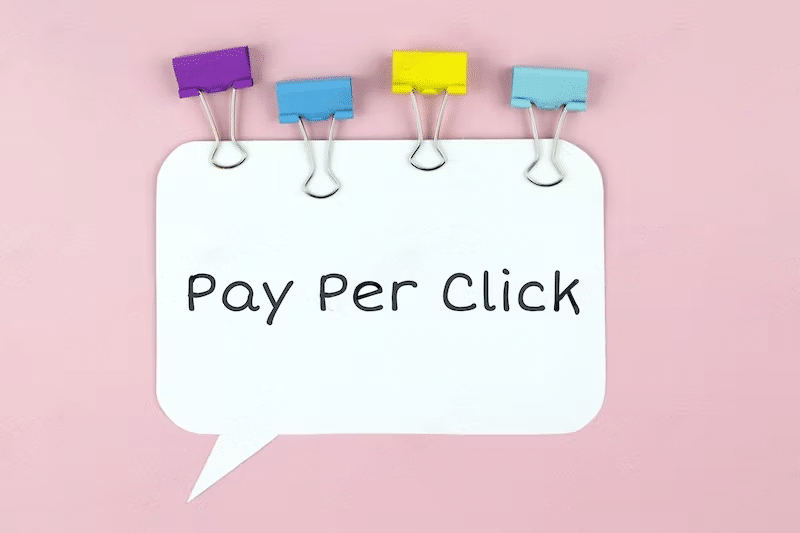
Introduction to PPC Keyword Research
When it comes to pay-per-click (PPC) advertising, keyword research plays a crucial role in achieving campaign success. By understanding the importance of PPC keyword research and how it impacts the effectiveness of your campaigns, you can create a solid foundation for reaching your target audience and driving relevant traffic to your website.
Understanding the Importance of PPC Keyword Research
PPC keyword research is the process of identifying the keywords and phrases that are most relevant to your business and target audience. These keywords are the terms that users are likely to search for when looking for products or services similar to what you offer. By incorporating these keywords into your PPC campaigns, you increase the chances of your ads appearing when users are actively searching for what you provide.
Effective PPC keyword research is essential for several reasons:
- Relevance: By focusing on relevant keywords, you can ensure that your ads are displayed to users who are actively interested in what you offer. This improves the chances of attracting qualified traffic to your website.
- Cost Efficiency: PPC campaigns can be costly, especially if you bid on highly competitive keywords. By conducting thorough keyword research, you can identify long-tail keywords and niche terms that may have lower competition and cost per click (CPC). This allows you to maximize your budget and achieve a better return on investment (ROI).
- Improved Quality Score: The relevance of your keywords plays a significant role in determining your Quality Score, which influences your ad rank and cost per click. By targeting highly relevant keywords, you can improve your Quality Score, leading to higher ad rankings and potentially lower costs.
- Targeted Audience: PPC keyword research helps you understand your target audience better. By identifying the keywords they use, you gain insights into their interests, needs, and preferences. This knowledge can be used to create tailored ad copy and landing pages that resonate with your audience, increasing the likelihood of conversions.
How PPC Keyword Research Impacts Campaign Success
The success of your PPC campaigns heavily relies on thorough keyword research. By investing time and effort into this process, you can:
- Drive targeted traffic: By selecting relevant keywords, you can attract users who are actively searching for your products or services. This increases the chances of generating high-quality leads and conversions.
- Increase ad visibility: Through keyword research, you can identify the keywords that are most likely to trigger your ads. By targeting these terms strategically, you can increase your ad visibility and reach a larger audience.
- Improve ad relevance: Relevance is a key factor in achieving campaign success. By aligning your ads with the keywords users are searching for, you can deliver highly relevant and targeted messaging. This improves the user experience and increases the likelihood of ad clicks and conversions.
- Optimize your budget: Keyword research helps you identify high-value keywords that align with your budget. By focusing on cost-effective keywords with lower competition, you can make your budget go further and achieve better results.
By understanding the importance of PPC keyword research and how it impacts your campaign success, you can lay the groundwork for effective ad targeting, increased visibility, and improved ROI. The next step is to build a solid foundation by defining your campaign goals and identifying your target audience and user intent.
Building a Solid Foundation
Before diving into PPC keyword research, it’s important to establish a solid foundation for your campaign. This involves defining your campaign goals and identifying your target audience along with their user intent.
Defining Your Campaign Goals
To start, clearly define the goals of your PPC campaign. Are you looking to drive more website traffic, increase brand awareness, or boost sales? By establishing specific and measurable goals, you can align your keyword research efforts with the desired outcomes of your campaign.
For example, if your goal is to increase sales, you may want to focus on keywords that are more transactional in nature and have a higher likelihood of converting users into customers. On the other hand, if your goal is to raise brand awareness, you might prioritize keywords that target a broader audience and generate more impressions.
Identifying Target Audience and User Intent
Understanding your target audience is crucial for effective PPC keyword research. Consider the demographics, interests, and preferences of your audience. What are their pain points and motivations? By gaining insights into your target audience, you can tailor your keyword selection to match their needs and interests.
User intent is another important aspect to consider. Analyze the intent behind the keywords your audience is using when searching for products or services related to your business. Are they looking for information, comparing options, or ready to make a purchase? By aligning your keywords with user intent, you can deliver more relevant ads and improve your campaign’s performance.
To identify your target audience and their user intent, you can leverage various tools and techniques, such as audience targeting and keyword research tools. Audience targeting allows you to narrow down your PPC campaign to specific demographics, interests, and behaviors. Keyword research tools provide valuable insights into search volumes, competition, and related keywords, helping you identify the most relevant and effective keywords for your campaign.
By building a solid foundation through clearly defined campaign goals and a deep understanding of your target audience and user intent, you can lay the groundwork for effective PPC keyword research. Stay tuned for the next section on generating keyword ideas to further optimize your PPC campaign.
Generating Keyword Ideas
To ensure the success of your PPC (pay per click) campaigns, it’s crucial to generate a comprehensive list of relevant keywords. This step is vital as it forms the foundation for your entire PPC keyword research strategy. In this section, we will explore two effective methods for generating keyword ideas: brainstorming and utilizing keyword research tools.
Brainstorming Relevant Keywords
Start by brainstorming a wide range of keywords that are relevant to your business, products, or services. Put yourself in the shoes of your target audience and think about the words or phrases they would use when searching for what you offer.
Consider the different aspects of your business, such as product names, features, benefits, and even location-specific keywords if applicable. Don’t forget to include variations of your main keywords, such as synonyms or alternative spellings.
To organize your brainstormed keywords effectively, group them into categories based on their relevance and the themes they represent. This will help you later when you’re evaluating keyword relevance and competition.
Utilizing Keyword Research Tools
In addition to brainstorming, using keyword research tools can significantly enhance your keyword generation process. These tools provide valuable insights into search volume, competition, and related keywords. They can help you discover new keyword ideas and identify high-potential keywords that you might have missed.
Popular PPC keyword research tools include Google Keyword Planner, SEMrush, Moz Keyword Explorer, and Ahrefs Keyword Explorer. These tools allow you to enter seed keywords or phrases and generate a comprehensive list of related keywords along with relevant data such as search volume and competition level.
By utilizing these tools, you can uncover valuable keywords that have a higher likelihood of driving targeted traffic to your website and increasing your campaign’s success.
Remember, the goal of generating keyword ideas is to build a solid foundation for your PPC campaigns. It’s essential to strike a balance between broad keywords that capture a wide audience and specific long-tail keywords that target a more niche audience. For more information on long-tail keywords and niche targeting, refer to the section on refining your keyword list.
Now that you have a list of relevant keywords, it’s time to evaluate their relevance and competition. This will help you filter and prioritize your keywords effectively, ensuring that you’re targeting the right audience with your PPC campaigns.
Evaluating Keyword Relevance and Competition
To ensure the success of your PPC campaign, it’s crucial to evaluate the relevance and competition of the keywords you choose. This process helps you identify the most effective keywords to target and maximize the impact of your campaign.
Assessing Keyword Relevance
When assessing keyword relevance, it’s important to consider the alignment between the keywords you select and your campaign goals. Start by analyzing your target audience and understanding their search intent. This will help you identify keywords that are closely related to your products or services.
To assess keyword relevance, consider the following factors:
- Search Volume: Evaluate the search volume of your chosen keywords. High search volume indicates that the keyword is popular among users, but it also means increased competition. On the other hand, low search volume may suggest that the keyword may not generate enough traffic for your campaign. Strike a balance by selecting keywords that have a reasonable search volume and align with your campaign goals.
- Relevance to Your Offering: Ensure that the keywords you choose accurately reflect your products or services. Irrelevant keywords can lead to wasted ad spend and poor campaign performance. For example, if you’re selling running shoes, targeting keywords related to gardening tools would not be relevant.
- User Intent: Consider the intent behind the search queries associated with your keywords. Are users looking for information, comparing products, or ready to make a purchase? Aligning your keywords with user intent ensures that your ads are displayed to the right audience at the right stage of their buying journey.
By carefully assessing keyword relevance, you can optimize your campaign to target the most relevant audience and increase the chances of attracting qualified traffic to your website.
Analyzing Keyword Competition
Analyzing keyword competition helps you understand the level of competition you’ll face when bidding on specific keywords. This analysis is crucial for managing your budget effectively and prioritizing the keywords that are most likely to yield positive results.
To analyze keyword competition, consider the following factors:
- Cost per Click (CPC): Analyze the average cost per click associated with your keywords. Higher CPCs indicate increased competition. Keep in mind that highly competitive keywords may require a larger budget to achieve a prominent position in search engine results pages.
- Ad Position: Evaluate the ad position of competitors targeting the same keywords. If top positions are dominated by well-established brands or competitors with significant budgets, it may be challenging to achieve a high ad position without adequate resources. Consider targeting keywords with slightly lower competition to optimize your budget.
- Quality Score: Quality Score is a metric used by search engines to determine the relevance and quality of your ads. Keywords with a high Quality Score have a better chance of achieving a higher ad position and lower CPC. Focus on optimizing your ads and landing pages to improve your Quality Score and gain a competitive edge.
By analyzing keyword competition, you can make informed decisions about the keywords you choose to target and develop a strategy that maximizes the effectiveness of your PPC campaign.
Remember, continuous monitoring and optimization of your keywords throughout your campaign is essential for adapting to changes in the competitive landscape and improving the overall performance of your PPC campaign.
Refining Your Keyword List
Once you have generated a comprehensive list of keywords, the next step in PPC keyword research is to refine and optimize your keyword list. This involves filtering and prioritizing keywords based on their relevance and potential impact on your campaign. Additionally, considering the use of long-tail keywords and niche targeting can further enhance the effectiveness of your PPC strategy.
Filtering and Prioritizing Keywords
Filtering and prioritizing keywords is essential to ensure that your PPC campaign focuses on the most relevant and valuable keywords for your business. Start by analyzing the search volume and competition levels of each keyword. This information can be obtained from keyword research tools like Google Ads Keyword Planner or other third-party tools.
Consider the following factors when filtering and prioritizing your keywords:
- Relevance: Choose keywords that closely match your products, services, or target audience’s search intent. By selecting highly relevant keywords, you increase the chances of attracting qualified traffic to your website.
- Search Volume: Prioritize keywords with a significant search volume as they indicate high user demand. However, striking a balance between search volume and competition is crucial. Extremely competitive keywords may be challenging to rank for, especially if you have a limited budget.
- Competition: Assess the level of competition for each keyword. Highly competitive keywords may require a larger budget and more aggressive bidding strategies. Consider targeting a mix of high-competition and low-competition keywords to optimize your campaign’s performance.
- Cost-Per-Click (CPC): Evaluate the average CPC for each keyword. Higher CPCs may impact your budget and ROI. It’s important to ensure that the potential return justifies the cost of bidding on a specific keyword.
By filtering and prioritizing your keyword list, you can focus your resources on the most valuable keywords that align with your campaign goals and budget. Remember to regularly review and update your keyword list as market trends and user behavior evolve.
Long-tail Keywords and Niche Targeting
In addition to broad keywords, incorporating long-tail keywords into your PPC strategy can be highly effective, especially for ecommerce businesses. Long-tail keywords are more specific and often have lower search volumes but higher conversion potential.
Long-tail keywords allow you to target niche audiences and capture highly qualified leads. These keywords often indicate a higher level of purchase intent as they reflect more specific user queries. For example, instead of targeting the broad keyword “running shoes,” you could optimize your campaign for long-tail keywords like “best running shoes for women with flat feet.”
When using long-tail keywords, consider the following:
- User Intent: Long-tail keywords provide insights into the specific needs and preferences of your target audience. By understanding user intent, you can tailor your ad copy and landing page to address their specific requirements, increasing the likelihood of conversion.
- Lower Competition: Long-tail keywords typically have lower competition compared to broad, generic keywords. This means that bidding on long-tail keywords may be more cost-effective while still attracting highly relevant traffic.
- Higher Conversion Rates: Due to their specificity, long-tail keywords often result in higher conversion rates. Users searching for specific products or services are more likely to take action and make a purchase.
Incorporating long-tail keywords into your PPC campaign can help you reach a more targeted audience, increase your conversion rates, and maximize your return on investment.
By refining your keyword list and focusing on relevant, high-value keywords, you can optimize your PPC campaign for success. Continually monitor and adjust your keyword strategy as your campaign progresses to ensure you are targeting the right audience with the right keywords.
Monitoring and Optimizing Keyword Performance

Once your pay-per-click (PPC) campaign is up and running, monitoring and optimizing the performance of your keywords becomes crucial. By tracking keyword performance metrics and adapting your PPC campaigns accordingly, you can maximize the effectiveness of your advertising efforts.
Tracking Keyword Performance Metrics
To gauge the success of your PPC keyword strategy, it’s essential to regularly monitor key performance metrics. These metrics provide valuable insights into the performance and effectiveness of your keywords. Here are some important metrics to track:
| Metric | Definition |
|---|---|
| Click-through Rate (CTR) | The percentage of users who click on your ad after seeing it. |
| Conversion Rate | The percentage of users who complete a desired action, such as making a purchase or filling out a form, after clicking on your ad. |
| Cost per Click (CPC) | The average cost you pay for each click on your ad. |
| Quality Score | A rating given by the search engine that measures the relevance and quality of your keywords, ads, and landing pages. |
| Ad Impressions | The number of times your ad is shown to users. |
| Ad Clicks | The total number of clicks your ad receives. |
By regularly analyzing these metrics, you can identify which keywords are performing well and driving desired actions, and which ones may need adjustment. This information allows you to make data-driven decisions to optimize your PPC campaigns. For more information on PPC advertising, check out our article on pay per click advertising.
Adapting and Optimizing Your PPC Campaigns
Based on the insights gained from tracking keyword performance metrics, it’s important to adapt and optimize your PPC campaigns to improve their effectiveness. Here are some strategies to consider:
- Keyword Bid Adjustment: Adjust your keyword bids to allocate more budget to high-performing keywords and reduce spending on underperforming ones. This helps you maximize the visibility of your ads for keywords that drive conversions while minimizing costs. For more information on managing PPC campaigns, visit our article on PPC management.
- Ad Testing: Continuously test different ad variations to determine which ones resonate best with your target audience. Experiment with different headlines, ad copy, and calls to action to identify the most effective combinations. For more guidance on ad testing, refer to our article on ad testing.
- Landing Page Optimization: Ensure that the landing pages associated with your keywords and ads align with user intent and provide a seamless user experience. Optimize these pages by improving loading speed, enhancing content relevancy, and optimizing call-to-action buttons. Our article on landing page optimization offers valuable tips to help you create high-converting landing pages.
- Ad Extensions: Take advantage of ad extensions to provide additional information or incentives to users. Extensions such as call extensions, location extensions, and sitelink extensions can enhance the visibility and appeal of your ads. Implementing ad extensions can help improve click-through rates and increase the chances of conversion. Learn more about ad extensions in our article on ad extensions.
By continuously monitoring keyword performance metrics and making data-driven optimizations, you can refine your PPC campaigns to achieve better results. Remember to regularly track your progress, make adjustments as needed, and stay informed about the latest trends in PPC keyword research. With an optimized PPC strategy, you can maximize the return on your advertising investment and drive meaningful results for your business.






